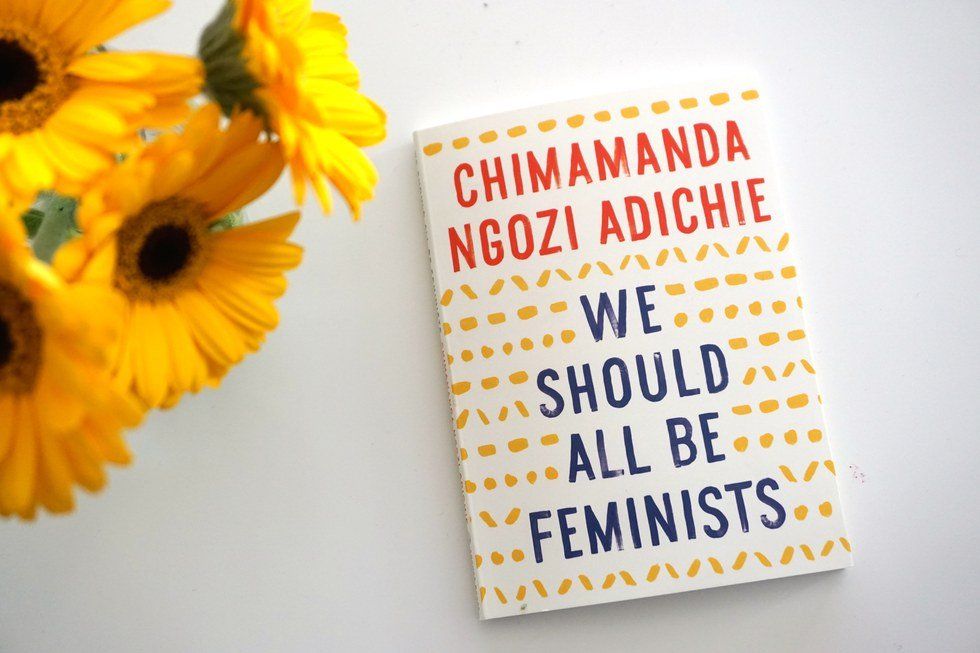No, it's not a viral hashtag or a trendy new website, though it might as well be. Chimamanda Ngozi Adichie's newest book is a slim, unassuming packet of no more than fifty pages, and it's been sitting at number three on the New York Times Bestseller List for weeks now. Adapted from a TED talk she gave in her native country of Nigeria in 2013, it has obviously resonated with a lot of people. One of the reasons for that is summed up quite well by the quote of hers that appears on the back cover:
"I would like to ask that we begin to dream about and plan for a different world. A fairer world. A world of happier men and women who are truer to themselves. And this is how to start: we must raise our daughters differently. We must also raise our sons differently."
This is the idea at the heart of Adichie's argument: that we can no longer place the blame for the challenges that women face solely on women. Adichie, a MacArthur fellow who divides her time between the US and Nigeria, describes her childhood as a period of being uncertain exactly what a feminist was, knowing only that it was considered undesirable to be one.
From her early experiences of blatant street harassment to stories of more subtle instances, such as being paid less for doing the same job as a man, she paints a pretty universal picture of the struggles that many women face, while also acknowledging that her particular life experiences (as an immigrant, a woman of color, a successful author, a college graduate) do make her situation unique.
In one dramatic example, she describes being unable to rent a room in a Nigerian hotel, because it is regularly assumed in Nigeria that a woman in a hotel alone must be a sex worker. Here, again, she points out the hypocrisy that's evident in the simple fact that women are harassed and men aren't: "Why, by the way, do these hotels not focus on the demand for sex workers instead of on the ostensible supply?"
This simple and yet revolutionary idea: to cast the responsibility for making feminism work not just on women, but also on men. It is something that she returns to over and over again, especially in terms of female sexuality. "We teach girls that they cannot be sexual beings in the way boys are," she says. "We make them feel as though by being born female, they are already guilty of something."
Like Camille Paglia, another prominent modern feminist, she refuses to subscribe to the idea that men need to be viewed as instruments of intimidation. This, she argues, is both insulting to women and damaging to men, and is especially harmful to children and teenagers, who grow up being told that their roles in life are defined by their gender. "We spend too much time telling girls that they cannot be angry or aggressive or tough," she says, "but then we turn around and either praise or excuse men for the same reasons."
Instead, she says, men need to be held accountable for their actions towards women, and need to be aware of the ways, small and large, in which they routinely devalue women, most notably women of color (who, as she points out, are often subject to abuse from other women as well as men).
In the end, it shouldn't be the responsibility of women to defend themselves against a system that is outdated and hostile to them; it's the responsibility of everyone, of every gender, to begin to recognize the hypocrisy and violence that's evident in that system, and to move in the direction of positive change.
As she says, "All of us, women and men, must do better."





















